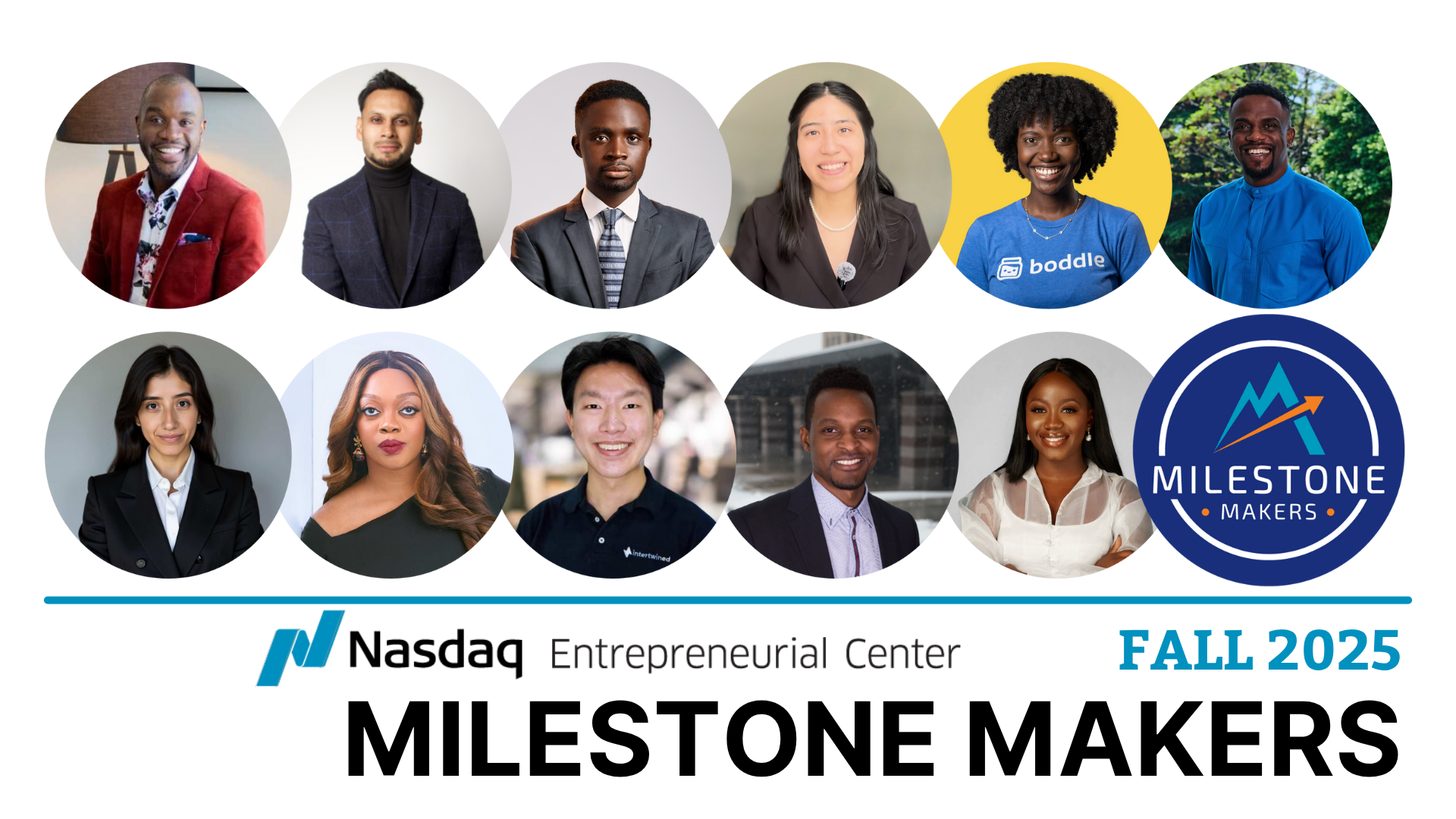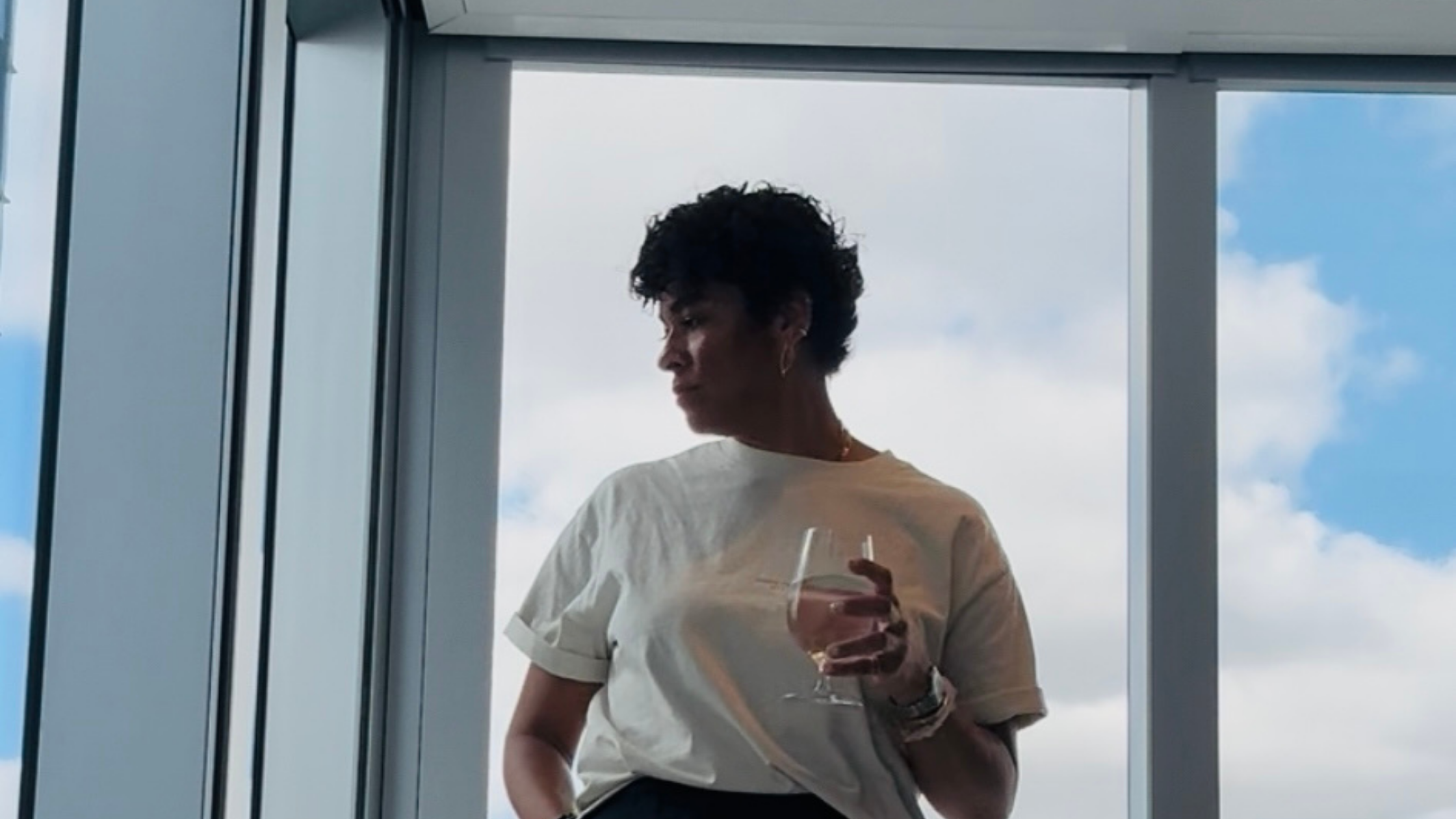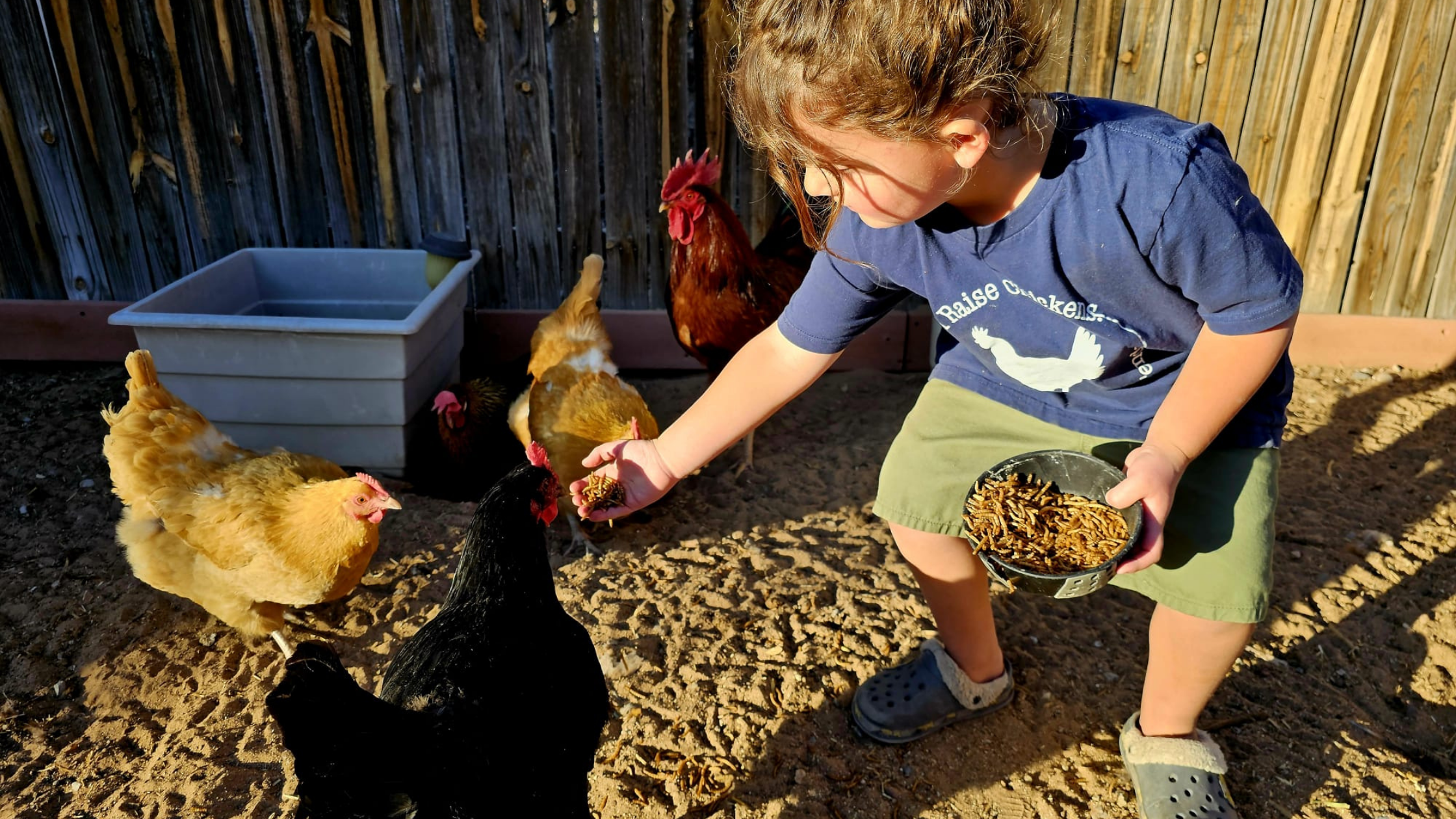James Reinhart, co-founder and CEO of thredUP. thredUP is the leading online marketplace for like-new women’s and kids’ clothing. The Nasdaq Entrepreneurial Center took a moment to catch up with James’ journey thus far.
What does “entrepreneurship” mean to you?
JR: I’ve always been an entrepreneur, even before I knew what it meant. When I was a kid I started a lawn-mowing business and eventually hired a bunch of other neighborhood kids to mow more lawns for greater profit. I think that’s the key – to be an entrepreneur you need to have the capacity to take a small action and, by recruiting the right people and creating infrastructure, build it into something that takes on a life of its own. I was always trying to help people in the most efficient, scalable way possible.
How did your company come to be?
JR: I was a grad student with a closet full of clothes I never wore from brands that people love. I went to sell my Banana Republic and J. Crew shirts at the local consignment shop, and they told me they didn’t accept those brands. At that moment, it occurred to me that if I had this problem, other people must too. After surveying a bunch of friends and people on campus, I realized there was an opportunity to unlock the value of all the clothes sitting in people’s closets.
What is the biggest experience or lesson gained on your journey so far?
JR: One of the lessons I always come back to is keep your strong convictions loosely held. This may sound like an oxymoron, but I have to remind myself that I’m not going to be right all of the time, and as a company we have to be willing to change our minds and move on. I experienced this for the first time when I decided to pivot the company overnight in the early days. We changed thredUP from a peer-to-peer model to a managed marketplace instantly, and we never looked back.
How is your company changing the landscape?
JR: Before thredUP, there had been no innovation in online thrift since eBay and Craigslist. We built the backbone of resale on the internet, applying technology and cutting-edge logistics to make it easy for anyone to sell their clothes and refresh their closet responsibly. By making shopping used clothes on the internet just as easy and trusted as shopping new, we’ve converted the skeptics and grown to be the world’s largest fashion resale platform. Last year, thredUP launched RAAS (Resale-as-a-Service) in addition to our core marketplace, to help retailers deliver resale experiences to their customers. We know that younger customers in particular crave value, freshness, and sustainability, and with RAAS, we make it easy for any retailer or brand to evolve to meet their customers’ needs.
What do you wish you knew when you started? Is there anything you would do differently?
JR: How long it would take! Advice I give young entrepreneurs is to choose something you’ll feel passionate about for at least ten years. We’ve been at it at thredUP for a decade now, and while we’ve come a long way, I know there’s still a lot of work to be done. My passion for the business and our mission keeps me fired up and motivated every day.
What advice/credo do you live by as you grow the business / what is your professional and personal mission statement?
JR: People first. Part of our “people plan” at thredUP is to work hard to ensure we have the right people at the company and that they value and uphold the culture of the thredUP. We believe deeply that happy, personally fulfilled employees are the best ones. We have six core values that drive what we do each day at thredUP: speak up, think big, influence outcomes, practice infinite learning & transparency, and seek the truth. As the business grows, it’s crucial these values remain at the core of what we do. thredUP is a place for the infinitely curious to thrive. We like to move quickly, make mistakes and learn from them.
What’s it like to work alone or with your partners? What advice do you have for fellow entrepreneurs about building and leading teams?
JR: At thredUP, one of the most important parts of my job is hiring the right people. I think to be an entrepreneur you need to become skilled at recruiting talent who can help you grow your idea into a thriving business. For me, it was important at the start of the business to hire technical thinkers who could build the infrastructure to process and house what is now millions of unique items circulating through our distribution centers. We hired the same engineers who built the Netflix DVD warehouses to create a proprietary processing system for thredUP, and we’re now receiving upwards of 100K unique SKUs each day and continuing to scale.
As a leader, it’s important to set the tone for the company, and hire smart to maintain company culture as you grow. It’s important to me to show up with a positive attitude every day, and I see that reflected in the team members around me.
Where do you find inspiration when faced with challenges?
JR: I’ve always been an active person, so when I’m feeling stuck you’ll usually find me outdoors — biking, camping with my family, running around with my kids.
What does “success” look like for you? What do you think will help you achieve it?
JR: thredUP’s mission is to inspire a new generation to think secondhand first. My dream is a Clean Out bag in every closet, and thredUP as a household name across America — the first place people look when they want an amazing outfit for a great price. It’s crazy to look back ten years and see how far we’ve come, and I think as long as we keep an eye toward why we started this business in the first place, we will get there.
What is your proudest and darkest moment so far? Share a key high and a key low from your journey if you can.
JR: One of my greatest highs was actually at one of my lowest points. I was rejected 27 times by investors before receiving my first yes. In those moments, I learned the hard way that you can’t convince investors to change their minds. I had to find an investor who believed in my vision and felt passionate about thredUP’s mission. All you need is one yes, but with a pregnant wife at home and my savings poured into this company, it was hard to keep that in mind. Eventually though, I met Patricia Nakache at Trinity. She immediately saw the potential of this idea when no one else had. She opened the door for thredUP to ultimately raise $300M and become the company we are today.
What lesson did 2019 have for you? What do you look forward to in 2020?
Things have a way of coming together — but only if you keep on the grind. We had an opportunity that fell through last year, but ultimately paved the way for a bigger and better opportunity that we landed. If we hadn’t experienced that failure, learned from it, and kept moving, we wouldn’t have gotten to experience the even greater success waiting for us on the other side. In 2020, I’m excited to further our mission of inspiring a new generation to think secondhand first through the expansion of our core marketplace, as well as more retail partners joining our RAAS platform.
Many entrepreneurs continue to perfect their daily routines to support their work and greater vision; would you mind sharing your morning routine or a regular ritual that grounds your work each day?
JR: I wake up at 6am every day to read my email and catch up on the latest news. From there, my wife and I work together to feed the kids breakfast, make lunches and help get them off to school. I like to stay active, so often I mix in a quick workout and then commute to work — which only takes me 15 minutes since we opened our new HQ in Oakland!
I always try to connect face-to-face with people at the office (since I’m traveling a lot) and my days are pretty jammed. We have an open plan workspace, so no one – including our execs – is sitting behind a closed door. This makes it easier for me to connect with team members who will often come by my desk to ask a quick question or give a progress update. At night I try to prioritize getting home to eat dinner with my family and catch up with my wife – and we do our best to spend time with friends as much as possible.
At thredUP, we instituted something called “Maker Days”, where everyone works from home on Tuesdays and Thursdays to create space free of meetings and distractions and allow for big-picture thinking. On Maker Days I usually get clarity on anything I’ve been struggling with from a business perspective, and come back the next day with solutions.
What kind of an entrepreneur do you want to be known as, as in, what do you want your legacy to be?
JR: I created thredUP to solve a real problem for real people. I want to be known as an entrepreneur who created a business that does good: for people and the planet. At thredUP, we’re changing the way people shop and the way they consume, keeping money in consumers’ pockets and keeping garments out of landfills. Ten years from now, our closets will be filled with secondhand and our view of ownership will be much more fluid — and I’m proud that thredUP is leading that shift.




